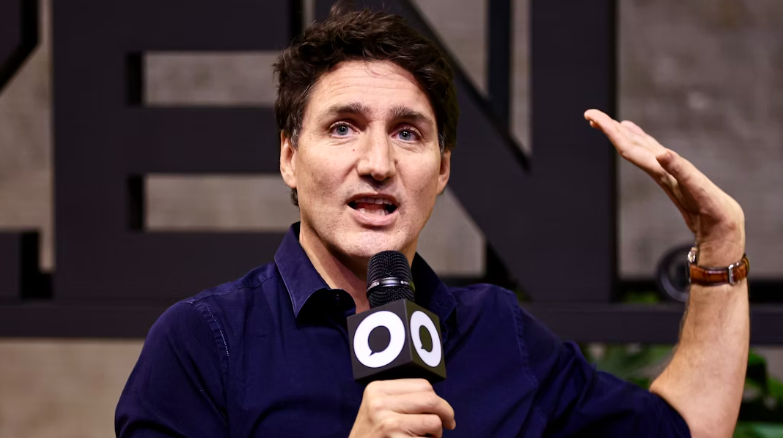Canadian Prime Minister Justin Trudeau To Resign This Week
Update: 11:22AM – Trudeau officially resigns
BREAKING: Justin Trudeau officially resigns as Prime Minister of Canada.
— Joey Salads (@JoeySalads) January 6, 2025
Canadian Prime Minister Justin Trudeau is reportedly preparing to resign as leader of the Liberal Party this week, marking the end of his nearly decade-long tenure. This decision comes amid increasing internal dissent, declining public approval, and mounting external challenges, which have significantly eroded his political standing.
Internal Party Unrest
Trudeau has faced growing pressure from within his own Liberal Party to step down. Reports suggest that a significant majority of Liberal MPs, particularly those from Ontario and Atlantic Canada, have voiced concerns about his leadership, citing his failure to address critical issues such as the economy, housing affordability, and immigration policy.
The resignation of Deputy Prime Minister and Finance Minister Chrystia Freeland last month dealt a critical blow to Trudeau’s government. Freeland, a long-time ally and one of the most influential figures in the cabinet, stepped down over policy disagreements, further destabilizing the administration.
Declining Public Support
Trudeau’s popularity has been on a steady decline, with polls showing significant public dissatisfaction with his leadership. The Liberal Party has suffered in recent elections, losing its majority status and experiencing a sharp drop in national support. Current polling indicates a substantial lead for the opposition Conservative Party, raising concerns within the Liberal ranks about the party’s ability to recover under Trudeau’s leadership.
Economic and International Challenges
The resignation comes at a time of significant economic and geopolitical pressures:
- Trade Tensions with the U.S.: President-elect Donald Trump’s threats to impose tariffs on Canadian goods have raised alarm in Ottawa. These tariffs could have serious economic consequences for Canada, further complicating Trudeau’s leadership.
- Rising Deficits: Canada’s budget deficit has ballooned to $61.9 billion for 2023-24, exceeding projections and drawing criticism for a lack of fiscal discipline.
- Housing Crisis: Soaring housing costs and the government’s perceived failure to address affordability have been key points of contention among voters.
Potential Successors
Trudeau’s resignation is expected to trigger a leadership race within the Liberal Party. Potential candidates include former Finance Minister Chrystia Freeland, despite her recent departure, and Intergovernmental Affairs Minister Dominic LeBlanc. Both figures are seen as possible unifying forces for the fractured party.
Legacy in Question
Trudeau’s tenure, which began with promises of progressive reform and inclusivity, has been overshadowed in recent years by scandals, policy missteps, and eroding public trust. While his government passed significant environmental and social policies, critics argue that Trudeau’s leadership often lacked consistency and effectiveness.
What’s Next?
With Trudeau’s resignation anticipated, the Liberal Party faces an uphill battle to rebuild its image and reconnect with voters. The timing is critical, as a leadership vacuum could leave the party vulnerable in the face of a resurgent Conservative opposition led by Pierre Poilievre.
As Trudeau prepares to step down, Canadians are left to reflect on the mixed legacy of a leader who began with high hopes but leaves amid growing dissatisfaction. The coming weeks will be pivotal for the future of the Liberal Party and Canada’s political landscape.

